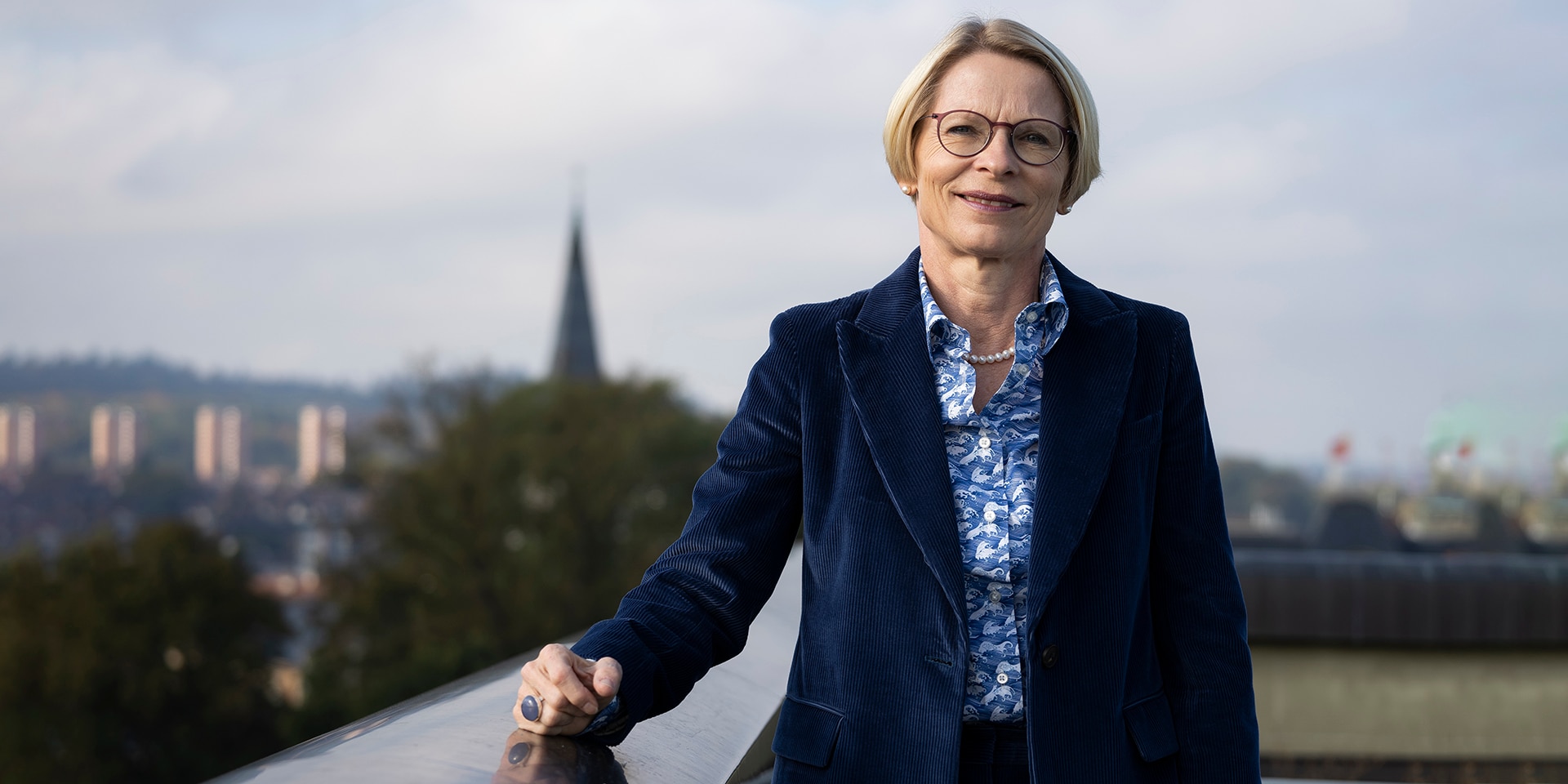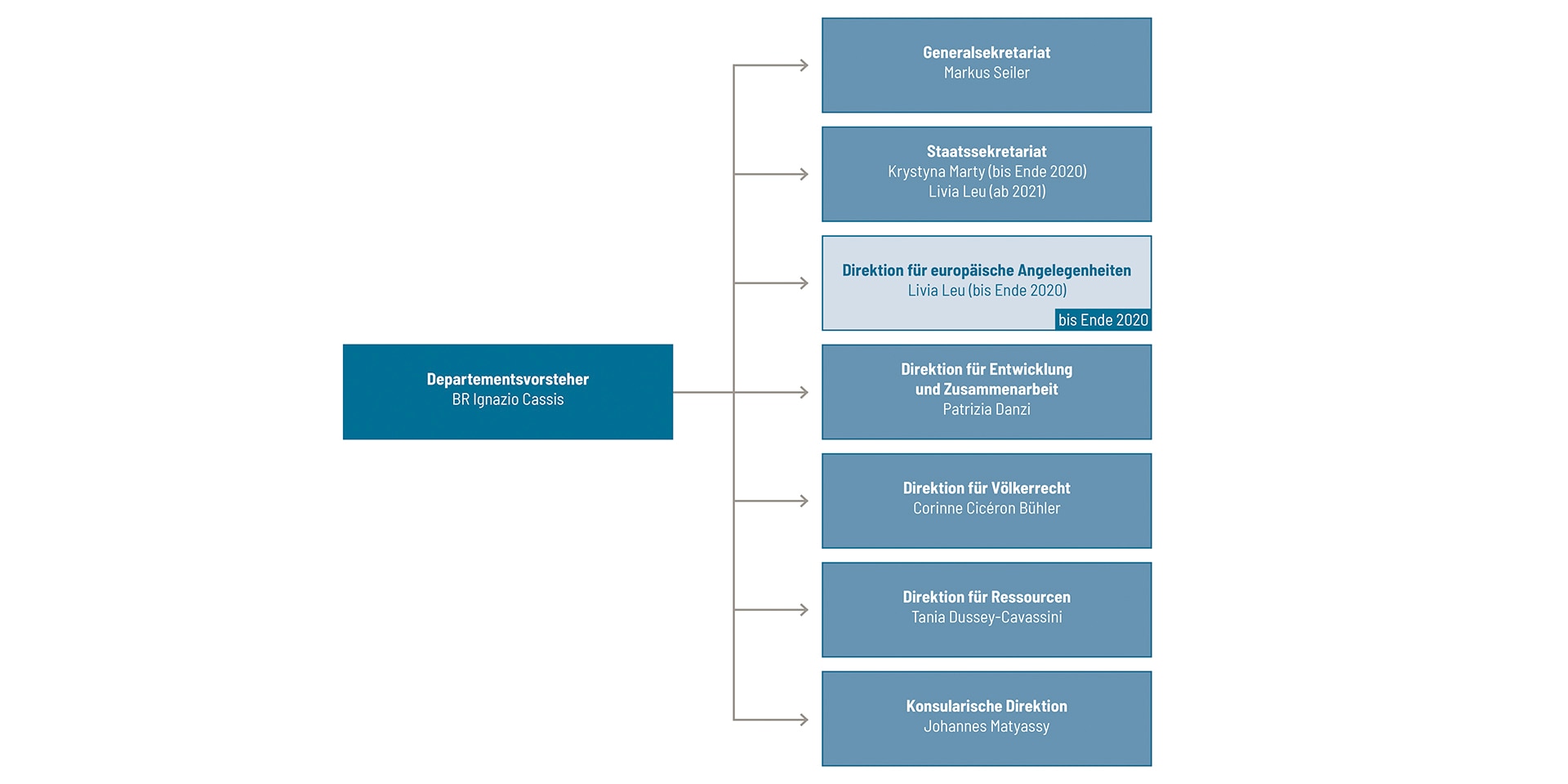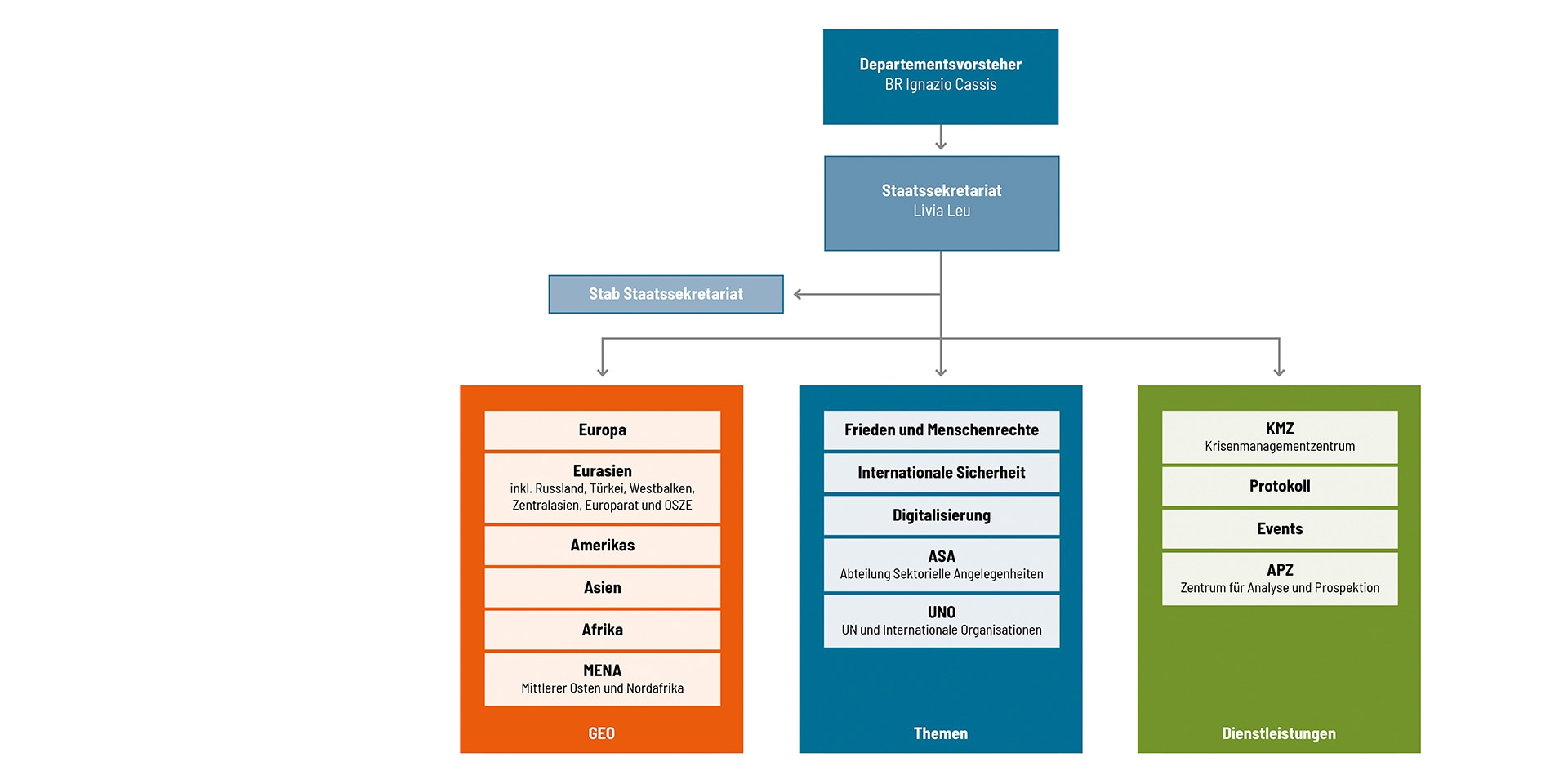The FDFA adapts its organisational structure
Livia Leu, who is currently Switzerland's ambassador in Paris, will assume the leadership of the Directorate for European Affairs (DEA) with immediate effect and will take up the post of chief negotiator for negotiations with the EU. She will receive the title of State Secretary. The Federal Council also agreed to adjustments to the structure of the Federal Department of Foreign Affairs (FDFA). From 1 January, the European Affairs and Political Affairs directorates will be merged under a single State Secretariat headed by Livia Leu as the FDFA State Secretary.

As State Secretary, Livia Leu will take over the Directorate for European Affairs (DEA) with immediate effect and will take up the post of chief negotiator for negotiations with the EU. © FDFA
The Federal Council decision creates the structural and staffing conditions needed to effectively implement the Foreign Policy Strategy 2020–23 and the next phase of the negotiations with the EU. The Federal Council announced that talks on the institutional agreement would resume following the vote on the Limitation Initiative. In the weeks to come, it will set out Switzerland's position and launch discussions with the EU on how to resolve the remaining issues.
Capacities for determined implementation of the Foreign Policy Strategy
Livia Leu was appointed through a competitive application process. The new State Secretary has in-depth experience with regard to the themes of peace and security, prosperity, sustainability and digitalisation, which are focuses of the Foreign Policy Strategy 2020–23.
Livia Leu studied law in Zurich and Lausanne and was admitted to the bar in the canton of Zurich before joining the FDFA in 1989. She has held various posts at the FDFA's head office in Bern and abroad – including that of head of mission in Iran – and for the last two years has been the ambassador to France and Monaco.
Livia Leu will head the Directorate of European Affairs until it is integrated into the restructured State Secretariat. She will remain the chief negotiator for negotiations with the EU when she assumes leadership of the State Secretariat on 1 January 2021.

The current head of the DEA, State Secretary Roberto Balzaretti, will shortly take up his new appointment as the ambassador in Paris. He will also take over the chairmanship of the Diplomatic Service Admissions Committee from Livia Leu. The Federal Council thanks him for his capable efforts as EU chief negotiator. In 2018, Roberto Balzaretti negotiated the draft of the Institutional Agreement, enabling discussions inside Switzerland to take place on the basis of a concrete document.
The Federal Council also expresses its thanks to Krystyna Marty for her judicious interim leadership of the State Secretariat in pursuit of the Federal Council's foreign policy objectives since the start of 2020. She will assume the post of ambassador in Moscow in early 2021 as planned.
More coherence in foreign policy matters
All European countries and institutions are now covered by a single division of the new State Secretariat. This division's closer proximity with those responsible for the other regions and direct liaison with the thematic divisions will result in more coherence on matters of importance for Switzerland's foreign policy.
Furthermore, the State Secretariat will bring together all six geographical divisions. In addition to Europe, it will comprise the divisions responsible for Eurasia, the Americas, Asia, Africa and the Middle East (MENA).

Five thematic divisions will also be created: Peace and Human Rights, International Security, Digitalisation, Sectoral Affairs and UN. This reflects the priorities set by the Federal Council in its Foreign Policy Strategy 2020–23.
Increasing importance of digitisation
In its Foreign Policy Strategy 2020–23, the Federal Council selected digitalisation as one of Switzerland's priorities in terms of foreign policy. The creation of a new division in charge of Digitalisation takes account of the growing importance of this topic in Switzerland's foreign policy.
Among this division's main tasks will be to position multilateral Geneva as a hub for digital governance and centre for global digital and technology policy. The FDFA also intends to advance its digital foreign policy.
